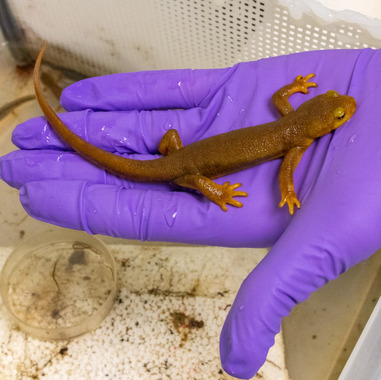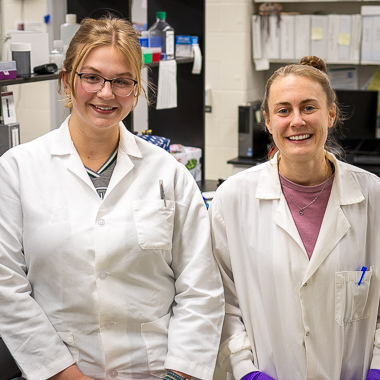New research could change how scientists diagnose cholera
New research by Alex Wessel reveals that standard lab methods using TCBS agar might miss certain cholera strains.
New research suggests that standard lab methods for diagnosing cholera might miss certain strains of the disease.

Alex Wessel is an MGI doctoral candidate in Chris Waters’ lab studying Vibrio cholerae—the bacterium that causes cholera. He developed an easy-to-use, scalable genetic library that introduces mutations known as transposons into cholerae cells. By exposing these mutated cells to different types of environmental stress, Wessel pinpointed genes essential for survival in those conditions.
One key finding showed that some mutants, especially those with flaws in genes associated with DNA repair, can’t grow on thiosulfate-citrate-bile salts-sucrose (TCBS) agar. Since TCBS is the go-to medium for identifying Vibrio in clinical samples, this discovery suggests certain cholera infections might slip through the cracks if they don’t grow on this standard media.
Implications of the NIH-funded study, published in the ASM Journal of Bacteriology and available on BioRxiv, are significant for both clinical and laboratory settings. “At least up until now, we took it that almost all strains of cholera can grow on TCBS, and that’s just not the case,” Wessel explained. “Certain mutants that might infect people could remain undetected using this culture-dependent method."
Additionally, Wessel’s research revealed that V. cholerae grown successively on TCBS agar can develop resistance to ciprofloxacin, a widely used antibiotic, without direct exposure to the drug. This means that growing V. cholerae on TCBS agar can inadvertently select for antibiotic-resistant strains.
Wessel emphasized the importance of understanding the limitations of diagnostic media like TCBS agar. "It's crucial for labs and clinicians to recognize that certain strains of this infectious agent can't grow on this media, which could impact the accuracy of cholera diagnoses."



